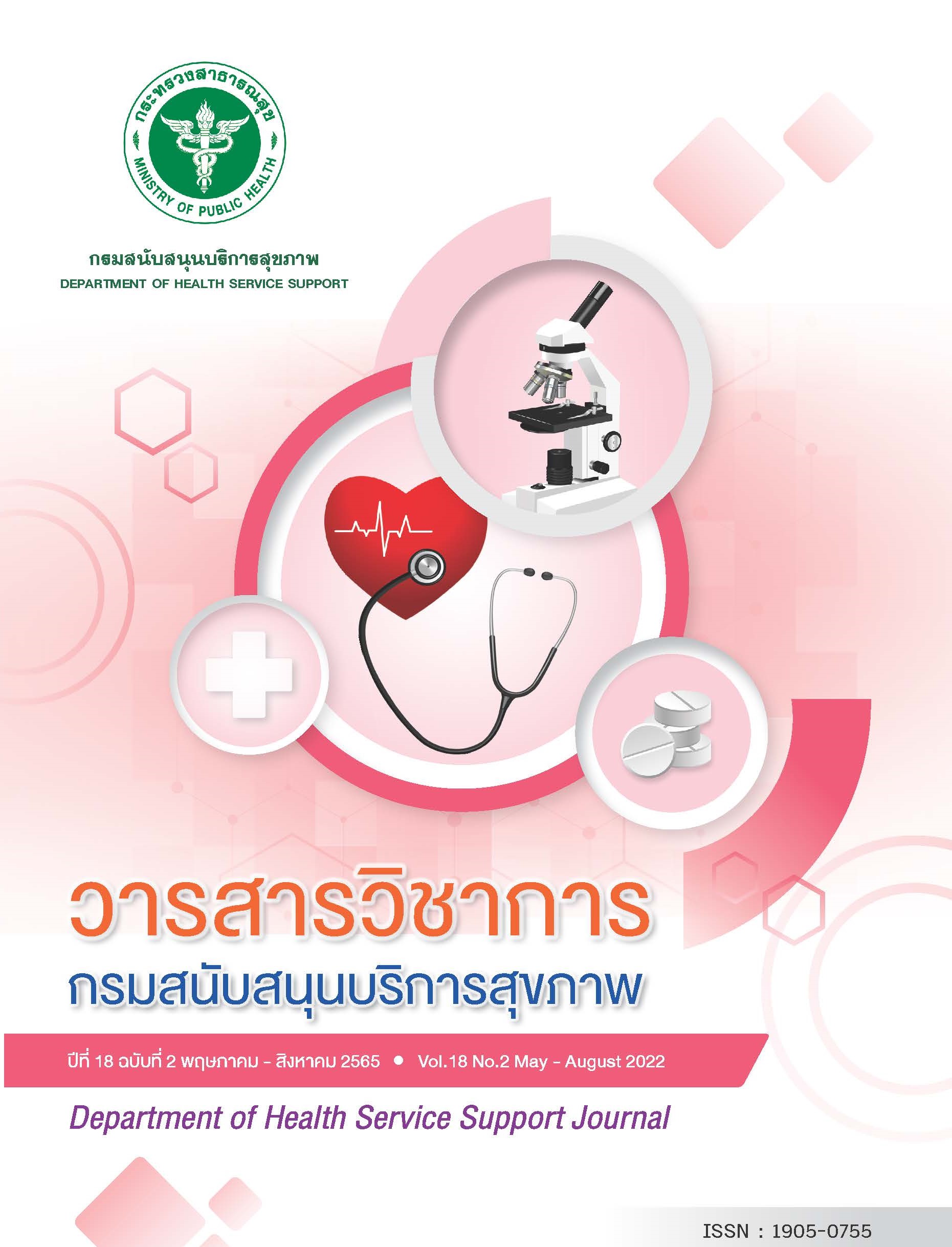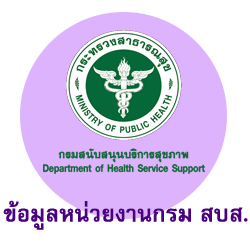TREATMENT OF NECROTIZING FASCIITIS WOUND POST-OPERATIVE WITH COLD AIR PLASMA, SURGICAL DEPARTMENT, LAMPHUN HOSPITAL
Keywords:
air plasma for wound healing, healing of chronic wounds, innovative wound healingAbstract
Chronic wounds are wounds that are difficult to heal or slow to heal over a period of time because the wound healing process is hampered. Patients with necrotizing fasciitis is a chronic wound that is the most common in the third category of surgery, Lamphun Hospital and classified as important disease groups of the work group. This research is quasi-experimental research. Further development of postoperative necrotizing fasciitis treatment with innovative cold air plasma wound healing using Compact Air plasma Jet model Nightingale. To develop the treatment of patients with necrotizing fasciitis after surgery Surgery Group Lamphun Hospital on the reduction in the number of length of stays, the mortality rate, the amputation rate, cost of treatment, Complications include pain, tissue burns. The data analysis was divided into 2 parts. including personal information, the statistical data was analyzed using descriptive statistics, ie frequency distribution and percentage. including number of days of sleep, mortality rate, amputation rate Complications include pain, tissue burns. cost of treatment Compared to pre-development using Paired t-test statistics.
The results showed that the samples of patients with postoperative necrotizing fasciitis who received additional treatment with cold air plasma. Compared to before development, the number of length of stays decreased from 11 days to 5 days, the mortality rate decreased from 5.09 to 0.13, the amputation rate from 1.19 to 0.3. Treatment costs were reduced by 48% compared to pre-development, using an Paired t-test, a statistically significant reduction in p-value < 0.01. Complications were pain, 0%. Burns were found to be 0%, others were foul-smelling, 25% were found.
References
A.Thrawut. (2000). Research Methodology, Behavioral and Social Sciences Experimental Methods. First printing, Ubon Ratchathani: Ubon Ratchathani Rajabhat Institute (In Thai)
Bishop et al. (2004). Importance of moisture balance at the wound-dressing interface. Retrieved July 22, 2017, from http://europepmc.org/abstract/med/12715483
British Columbia Provincial Nursing Skin and Wound Committee. (2015). Guideline: Wound Bed Preparation for Healable and Non-Healable Wounds in Adults & Children1. Retrieved May 2, 2017, from https:// mail-.com/attachment/u/o/ ?view
Caroline Dowsett and Heather Newton. (2005). Woundbed preparation :TIME in practice. Retrieved January 2, 2017, from http://www. woundsinternational.com/media/issues/122/ files/content _86.pdf
Cutting & White. (2002). Avoidance and management of peri-wound maceration of the skin. Retrieved July 22, 2017, from http://europepmc.org/abstract/med/med/ 12238719
Falanga V. (2000).. Principles of Moist Wound Healing. Retrieved September 2, 2015, from http://www.southwesthealthline.ca/ healthlibrary_docs/H.1.IntroMoist Wound Healing.pdf
K. Downwan. (22015). Wound Care & Wound Dressing. Retrieved 1 June 22017, from http:// www.rihes.cmu.ac.th/news/wp-content/
uploads/2015/03/Wound-Care-Wound-Dressing-edit-%............%8C.pdf (In Thai)
M Pornprom. (2010). Advanced Surgical Wound Care Technology Dressing. Retrieved 1 April 2017, from https://www.bangkokhospital. com/images/downloads/advanced .pdf
National Health and Medical Research Council (NHMRC). (1998). A guide to the development implementation and evaluation of clinical practice guidelines . Retrieved Februaryr 3, 2017, from www.ausinfo.gov.au/general/ genhottobu.htm
Pamela S. Grim, MD; Lawrence J. Gottlieb, MD; Allyn Boddie, RN; et al. (1990).Hyperbaric Oxygen Therapy .Retrieved May 8, 2017 from http://jamanetwork.com/journals/jama/ article-abstract/381546
Resar R et al. (2005). Using a bundle approach to improve ventilator care processes and reduce ventilator-associated pneumonia. Retrieved July 22, 2017, from http://www.ihi. org/resources//Pages/ImprovementStories/ WhatIsaBundle.asp
Schultz, Mozingo, Romanelli, & Claxton. (2005). Wound healing and TIME; new concepts and scientific applications. Retrieved July 22,
, from http://onlinelibrary.wiley.com/ doi/10.1111/j.1067-1927.2005.1304S1.x/full
Schreml et al. (2010). Oxygen in Acute and Chronic Wound Healing. Retrieved May 8, 2018. From https://pubmed.ncbi.nlm.nih.gov/20394633/
Sibbald RG et al. (2000). Preparing the wound bed--debridement, bacterial balance, and moisture balance. Retrieved May 8, 2017, from http://europepmc.org/abstract/med/ 11889735
T. Puthithorn and B Teerewan. (2019). Air plasma jet for treating chronic wound infections. Retrieved 1 April 2020 From http://www. thaiphysoc.org/article/96/ (In Thai)
Templeton. (2005). Management of chronic wounds: the role of silver-containing dressings. Retrieved July 22, 2017, from http://cmapspublic3.ihmc.us/rid=126635823 2317_1177275179_12935/9Management% 20of%20chronic%20wounds.pdf
Downloads
Published
How to Cite
Issue
Section
License
Copyright (c) 2022 Journal of Department of Health Service Support-วารสารวิชาการกรมสนับสนุนบริการสุขภาพ

This work is licensed under a Creative Commons Attribution-NonCommercial-NoDerivatives 4.0 International License.



